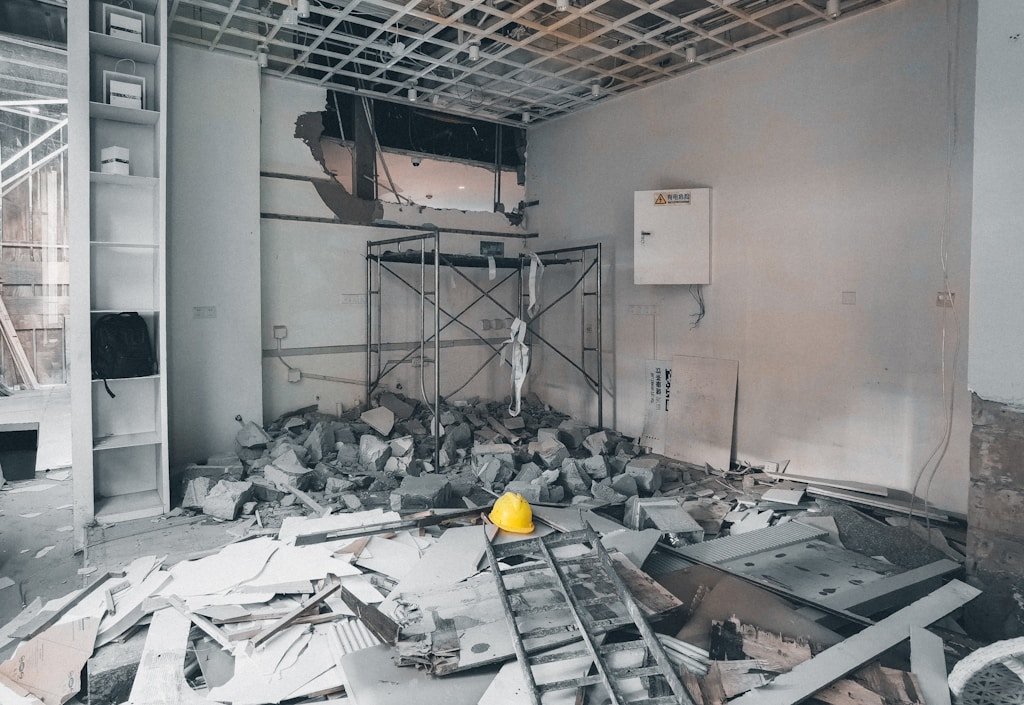How to Calculate Demolition Costs per m²
Demolition projects are an essential phase of many construction and renovation undertakings. Whether tearing down a small residential structure or preparing a large-scale commercial site, knowing the estimated cost per square meter is critical for budgeting and planning purposes. The overall expenses vary significantly depending on numerous factors such as location, materials, equipment used, and legal requirements. Calculating accurate demolition costs helps prevent project delays and unwanted expenses.
This guide explores the primary determinants of demolition costs, provides a step-by-step breakdown for estimating costs per square meter, highlights common materials and their price effects, presents frequently overlooked expenses, and offers practical tips to optimize budgets. Understanding these components enables better project planning and more accurate financial forecasting.
Factors Affecting Demolition Costs
The total cost of demolition typically depends on several key variables, the primary one being the structure’s size and type. Larger or more complex buildings, such as those made from reinforced concrete or containing special installations, often demand more time, equipment, and labor, resulting in higher costs per square meter. In contrast, smaller wooden structures are generally less expensive to demolish.
Another crucial consideration is the location. Demolition in urban areas may involve permits, noise limitations, restricted access, and logistical challenges, potentially increasing expenses. Furthermore, site-specific factors like proximity to other buildings, underground utilities, and access routes for machinery can also considerably affect the final price. The presence of hazardous materials like asbestos will require specialized handling and significantly increase costs.
Step-by-Step Guide to Calculating Demolition Costs per Square Meter
Accurately estimating demolition costs involves a multi-phase assessment. Begin by determining the total square meterage of the structure to be demolished. Then, identify the building type (e.g., residential, industrial), materials involved, and accessibility of the site. This information provides a solid foundation for calculating a realistic cost estimate.
Next, assign cost ranges for labor, machinery, waste disposal, and permits. These vary based on location and project complexity. A basic residential demolition might range between £30–£80 per m², while more complex commercial demolitions could exceed £150 per m². For an accurate and professional estimation tailored to the project’s requirements, consider enlisting expert support from estimedes.co.uk/en. Their services offer comprehensive construction cost estimating for various project types, saving both time and resources.
See Also: How to Choose the Right Paint Colors for Every Room in Your Home
Common Materials and Their Impact on Pricing
The type of construction material greatly influences demolition costs. Heavier and denser materials require specialized equipment and additional labor, whereas lighter materials are easier and quicker to dismantle. For example, wooden structures tend to be the most cost-effective to demolish, while brick and concrete extras increase operational complexity.
Material recycling and salvage potential also affect pricing. If parts of the structure, such as steel or high-grade wood, can be reclaimed, it may reduce net demolition costs. Here’s a quick overview of material impact:
Wood – easiest to demolish, lower disposal costs
Brick – moderate difficulty, may be partially reusable
Concrete – requires breaking machinery, high waste volume
Steel-framed – high salvage value, but complex removal
Recognizing material types early in the planning phase enables the selection of the appropriate technique and budget allocation, reducing the risk of unforeseen complications during execution.
See Also: 10 Easy and Affordable Home Improvement Projects You Can Do This Weekend
Additional Expenses to Consider in Demolition Projects
Beyond the core demolition charges, projects often incur additional expenses that many fail to factor into the initial estimate. The most significant of these is waste disposal. Construction debris must be sorted, transported, and dumped according to regulatory standards, and this process can substantially drive up costs. Renting skip bins or specialized hauling trucks is often necessary.
Permits and legal compliance can also affect the final budget. Most jurisdictions require demolition permits, environmental assessments, and sometimes historical evaluations depending on building age and vicinity. These costs vary and can range from £100 to £1000+, often dependent on regional laws. Additionally, utilities such as electricity, gas, and water must be safely disconnected before demolition begins, which may require hiring certified technicians.
See Also: Stm Oro – Discover Stm Oro App and Features Today
Tips for Reducing Demolition Costs Effectively
Minimizing demolition expenses without compromising safety or efficiency requires a strategic approach. Early planning is critical. Hiring a qualified estimator ensures that all cost-driving components are identified and quantified accurately. Utilizing professional services like those provided by estimedes.co.uk/en offers access to industry-leading knowledge and tools, streamlining the budgeting process and avoiding financial surprises mid-project.
Negotiating contracts with demolition professionals based on comprehensive quotes rather than hourly rates helps maintain budget control. Salvaging and selling reusable materials such as metal beams, copper wiring, and hardwood flooring can also trim total expenses while supporting sustainability. Choosing the right season for demolition, often the off-peak months, may result in lower labor and equipment costs.
Ultimately, collaborating with experienced cost estimators is one of the most reliable ways to ensure budget compliance and successful project execution. With the right information and support, demolition cost calculation becomes a manageable and predictable part of any construction or renovation venture.

